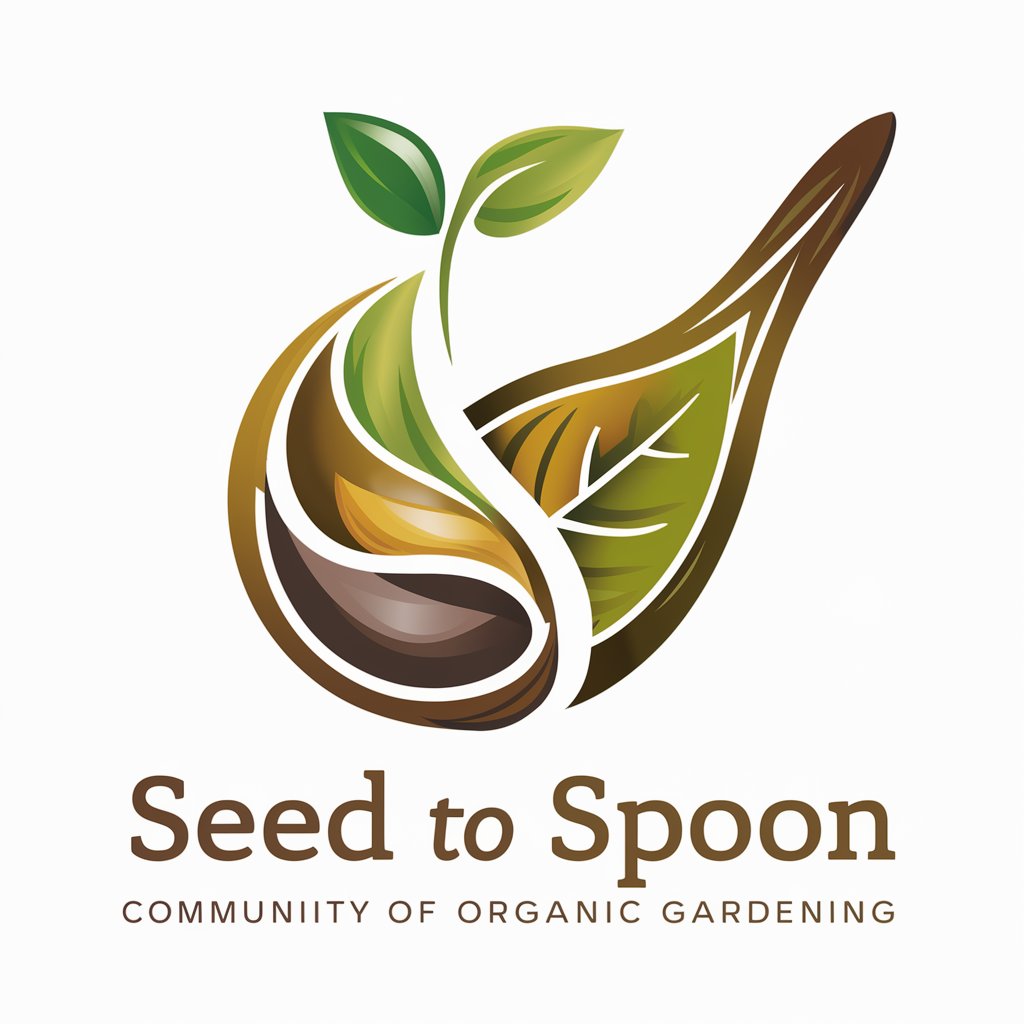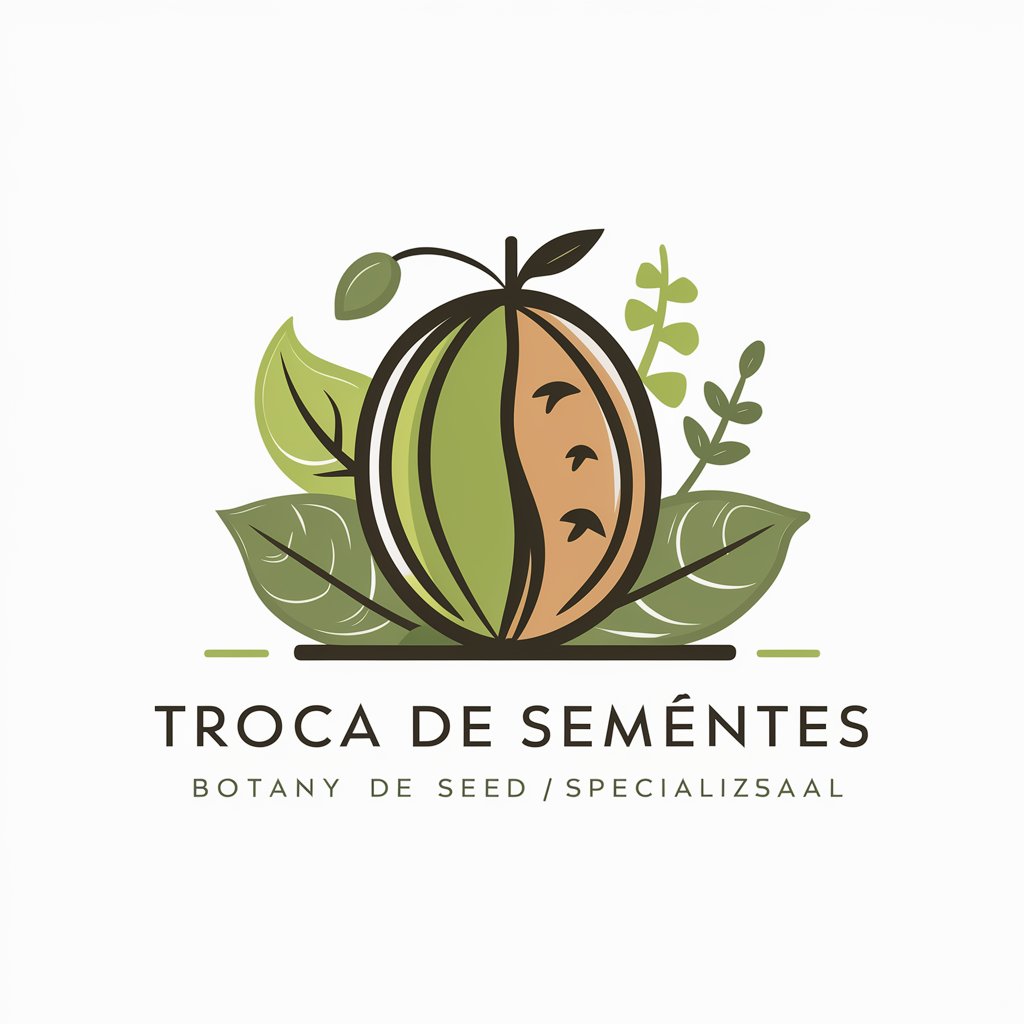
Seeds - Tailored Gardening Advice
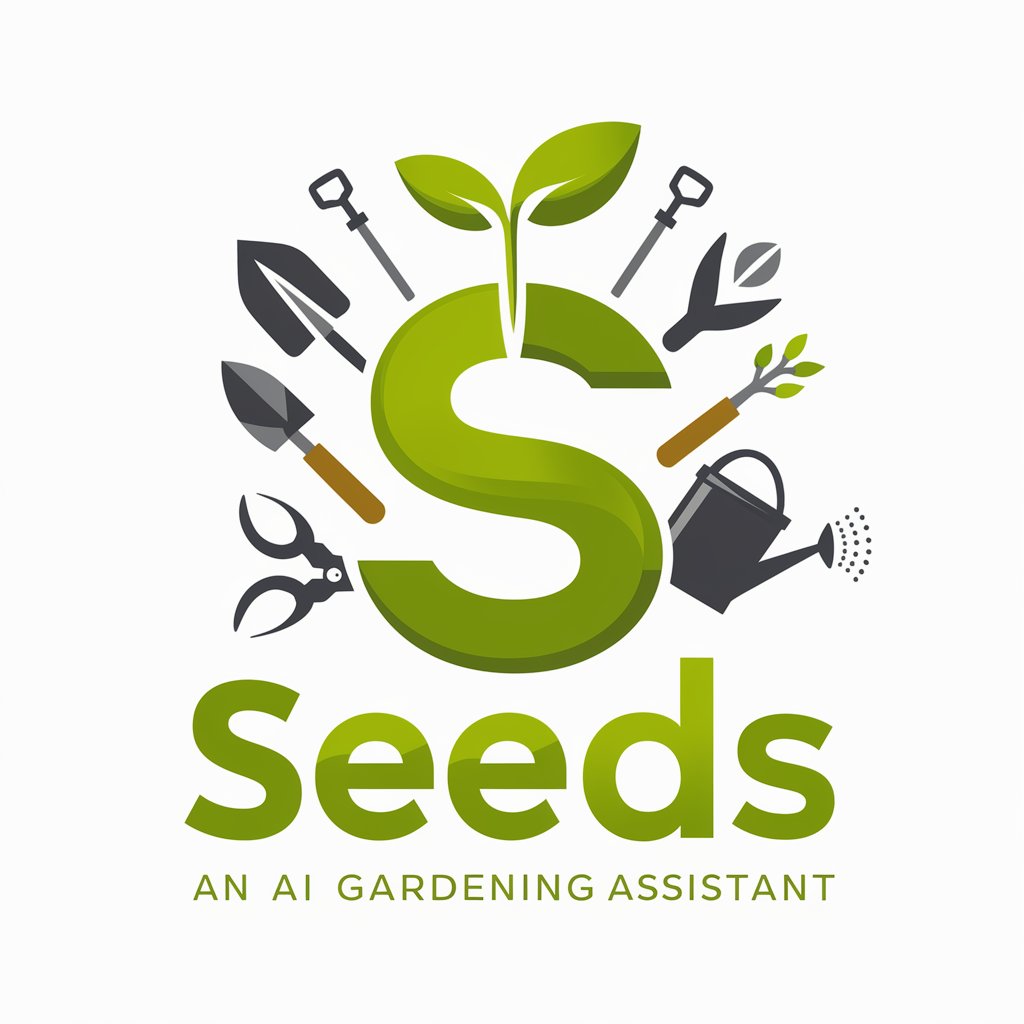
Welcome to Seeds! Let's cultivate your gardening knowledge together.
Cultivating growth with AI-driven insights
What are the best seed varieties for a small urban garden?
How do I prepare my soil for planting tomatoes?
Can you explain the process of starting seeds indoors?
What are the most effective organic pest control methods for vegetable gardens?
Get Embed Code
Introduction to Seeds
Seeds is a specialized GPT model designed to serve as an expert in horticulture, providing in-depth knowledge and advice on a wide range of gardening topics. This includes seed varieties, selection techniques, planting schedules, soil composition, growing methods, and care for garden crops. Designed with the purpose of assisting gardeners of all levels, Seeds offers detailed, practical tips and comprehensive insights into the world of gardening. For example, a user planning to start a vegetable garden could ask about the best heirloom tomato varieties for a particular climate, and Seeds would provide a list of suitable options along with planting tips, soil preparation advice, and care instructions to ensure a successful harvest. Powered by ChatGPT-4o。

Main Functions of Seeds
Seed Selection Guidance
Example
Advising on the best types of seeds for specific climates, soil types, or garden spaces.
Scenario
A beginner gardener in a cooler climate wants to know which vegetable seeds will thrive. Seeds recommends cold-tolerant varieties like kale, spinach, and peas, and explains how to adjust planting times to extend the growing season.
Planting Schedules
Example
Providing detailed planting calendars based on local climate zones.
Scenario
An experienced gardener looking to optimize their planting schedule asks for advice. Seeds suggests dates for starting seeds indoors, transplanting seedlings outside, and direct sowing in the garden, tailored to the gardener's specific USDA hardiness zone.
Soil Preparation and Management
Example
Offering guidance on improving soil health, composition, and nutrient management for different types of crops.
Scenario
A user with heavy clay soil seeks advice on improving soil structure for root vegetables. Seeds recommends incorporating organic matter, such as compost, and explains the benefits of cover crops and crop rotation to enhance soil fertility and structure.
Pest and Disease Management
Example
Identifying common garden pests and diseases, with organic and sustainable management strategies.
Scenario
A gardener notices unusual spots on their tomato plants and asks for help. Seeds identifies the symptoms of early blight and suggests organic control measures, including crop rotation, proper spacing for air circulation, and using copper-based fungicides.
Caring for Garden Crops
Example
Providing advice on watering, feeding, pruning, and harvesting garden crops for optimal health and yield.
Scenario
A user growing zucchini for the first time asks about care requirements. Seeds offers tips on watering frequency, the importance of mulching to retain soil moisture, and how to harvest zucchini at the right size for the best flavor and texture.
Ideal Users of Seeds Services
Beginner Gardeners
Individuals new to gardening who need guidance on starting their first garden, from choosing the right seed varieties to understanding the basics of soil health and plant care. Seeds can help demystify the gardening process, making it accessible and enjoyable for novices.
Experienced Gardeners
Seasoned gardeners looking to deepen their knowledge or tackle specific challenges in their gardens. Whether it's experimenting with new crop varieties, improving soil health, or dealing with pest infestations, Seeds provides expert advice to enhance their gardening practices.
Educational Institutions
Schools, universities, and other educational programs incorporating horticulture into their curriculum can benefit from Seeds' vast repository of gardening knowledge. It offers a reliable resource for students to learn about plant biology, ecology, and sustainable gardening practices.
Professional Horticulturists
Experts in the field of horticulture who seek detailed information on specific topics, such as rare plant varieties, advanced soil management techniques, or the latest in sustainable gardening practices. Seeds serves as a valuable tool for research and professional development.

How to Use Seeds: A Step-by-Step Guide
Start Your Journey
Begin by accessing yeschat.ai for a complimentary trial, requiring no sign-up or subscription to ChatGPT Plus.
Explore Features
Familiarize yourself with Seeds' capabilities by navigating through its interface, exploring various gardening topics such as seed selection, soil preparation, and plant care.
Select Your Interest
Choose a specific gardening area you're interested in. Whether it's vegetable gardening, flower cultivation, or organic practices, Seeds offers detailed insights.
Engage with Seeds
Utilize the platform to ask specific questions related to your gardening needs. Be as detailed as possible to receive tailored advice.
Apply Knowledge
Implement the guidance and tips provided by Seeds in your gardening projects. Monitor your progress and return for troubleshooting or further learning.
Try other advanced and practical GPTs
Brand Story GPT
Craft Your Brand's Story, Empowered by AI

Psycho
Empowering Emotional and Relationship Insights
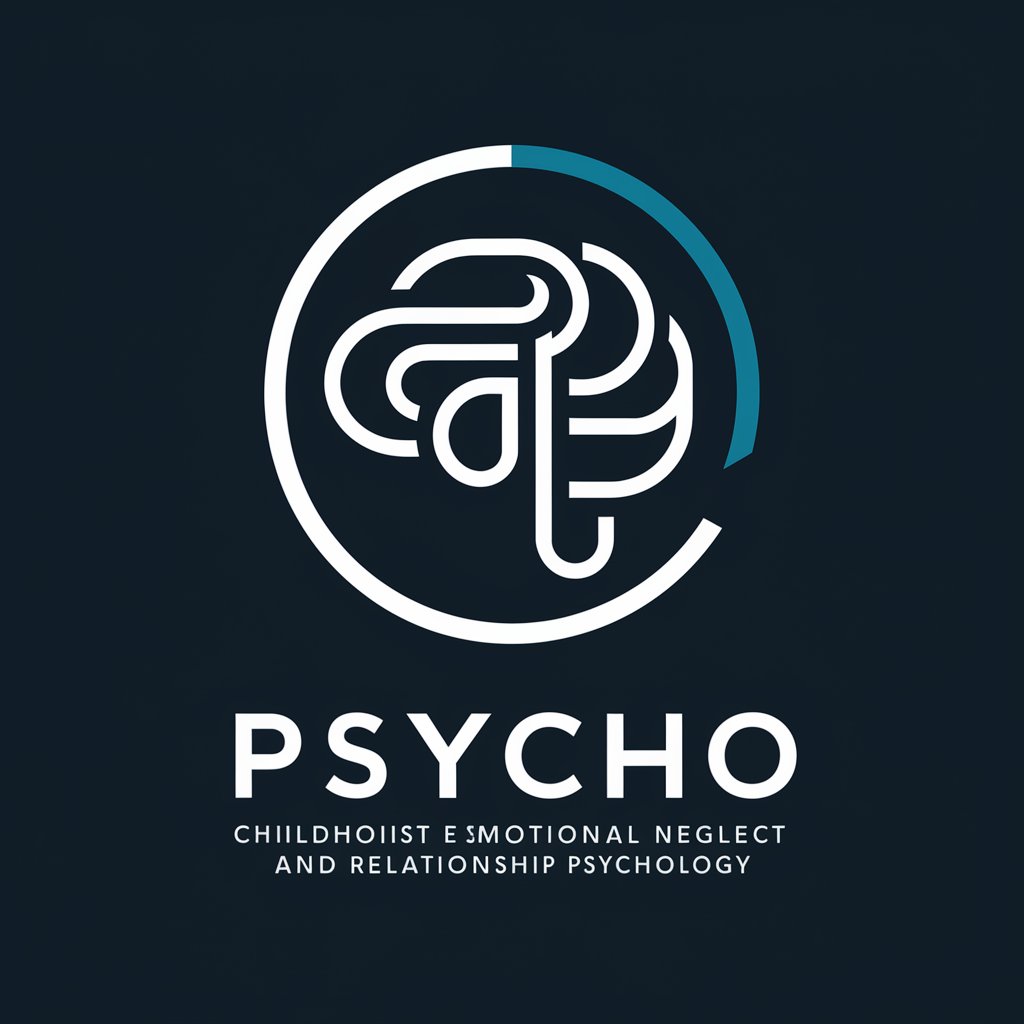
Digital Architecture Genius
Architecting Digital Solutions with AI

Class Action
Decoding Class Actions with AI

Class Action Lawyer GPT
AI-Powered Class Action Case Analysis

授業SA_人工知能応用論
Empowering learning with AI assistance

Garden Seeds
Cultivate your garden with AI-powered precision
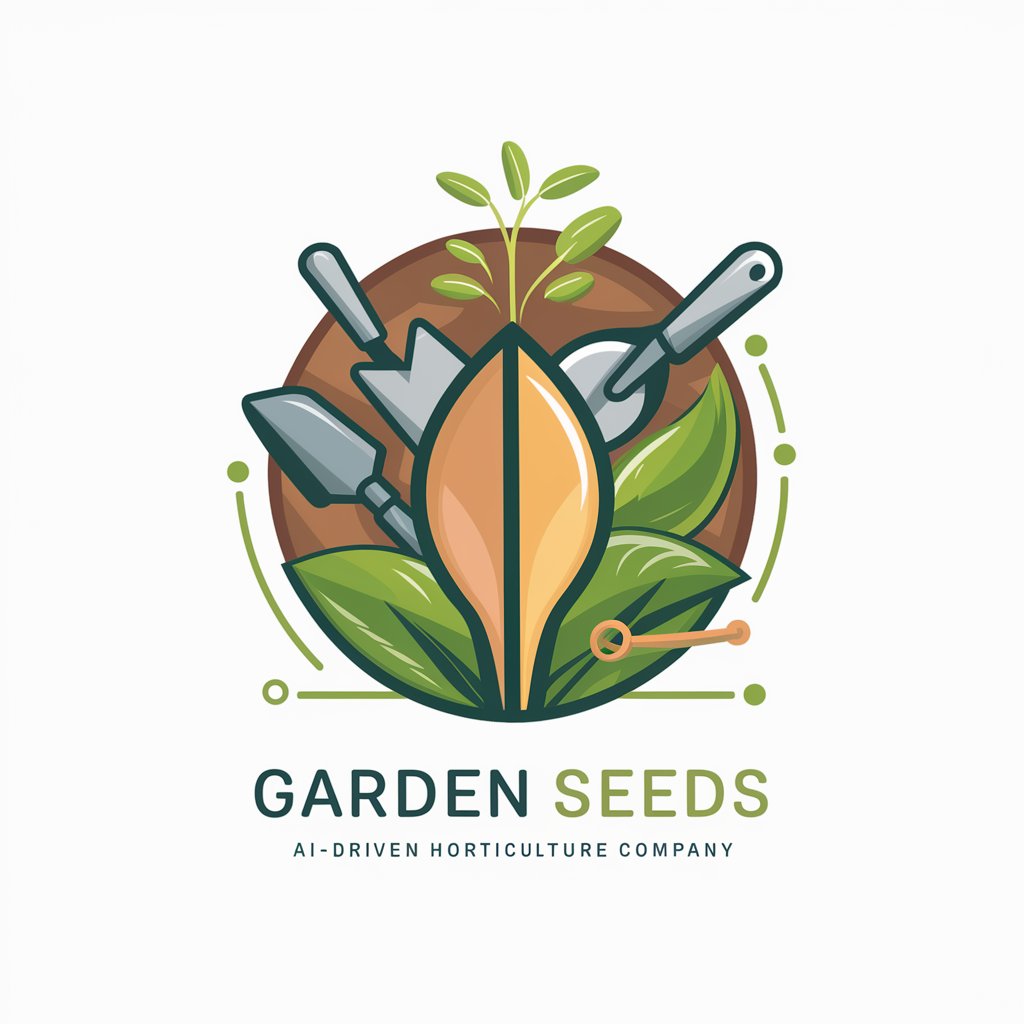
Vegetable Seeds
AI-Powered Gardening Guidance
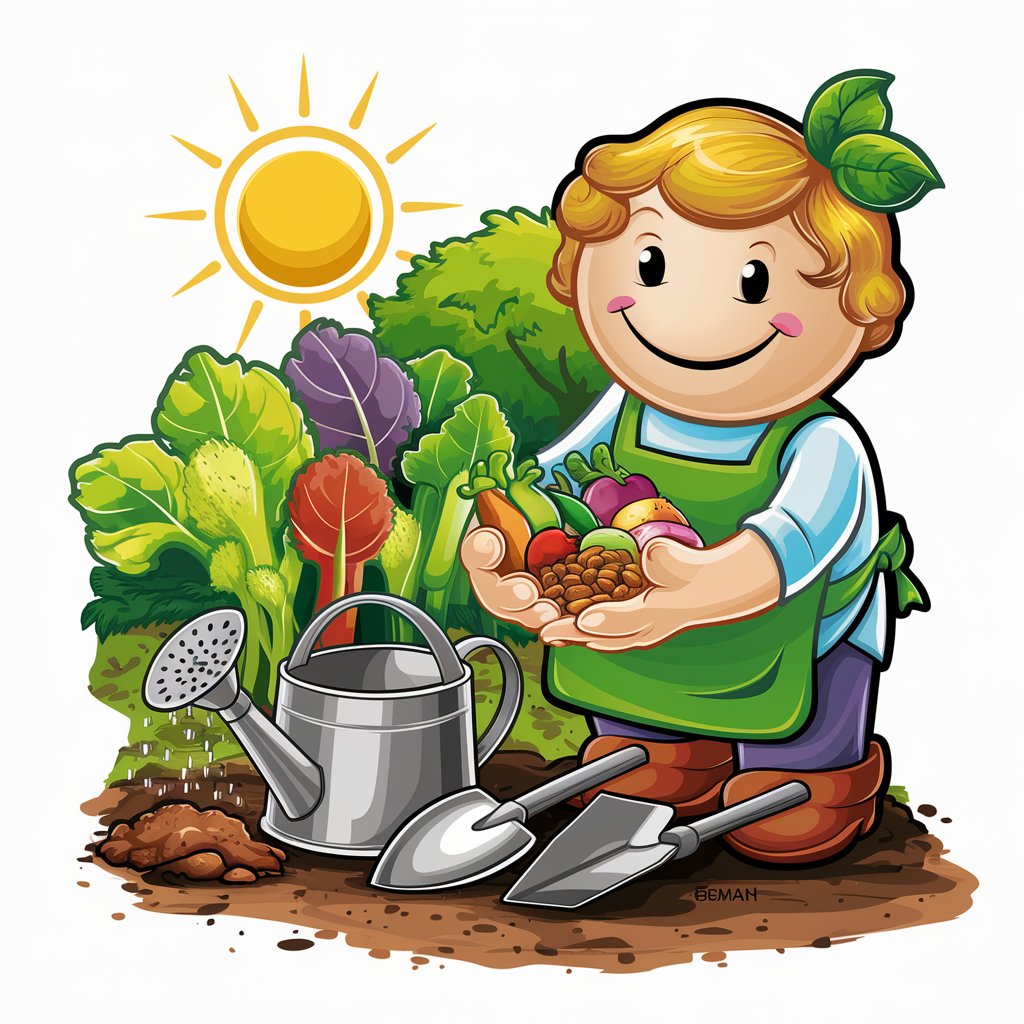
CinemaScope
Empowering Filmmakers with AI-driven Insights

flick wiki
Discover your next favorite film, powered by AI

Ultimate Business Advisor
Empowering Your Business with AI-driven Advice

Statistics Tutor
Demystifying Statistics with AI
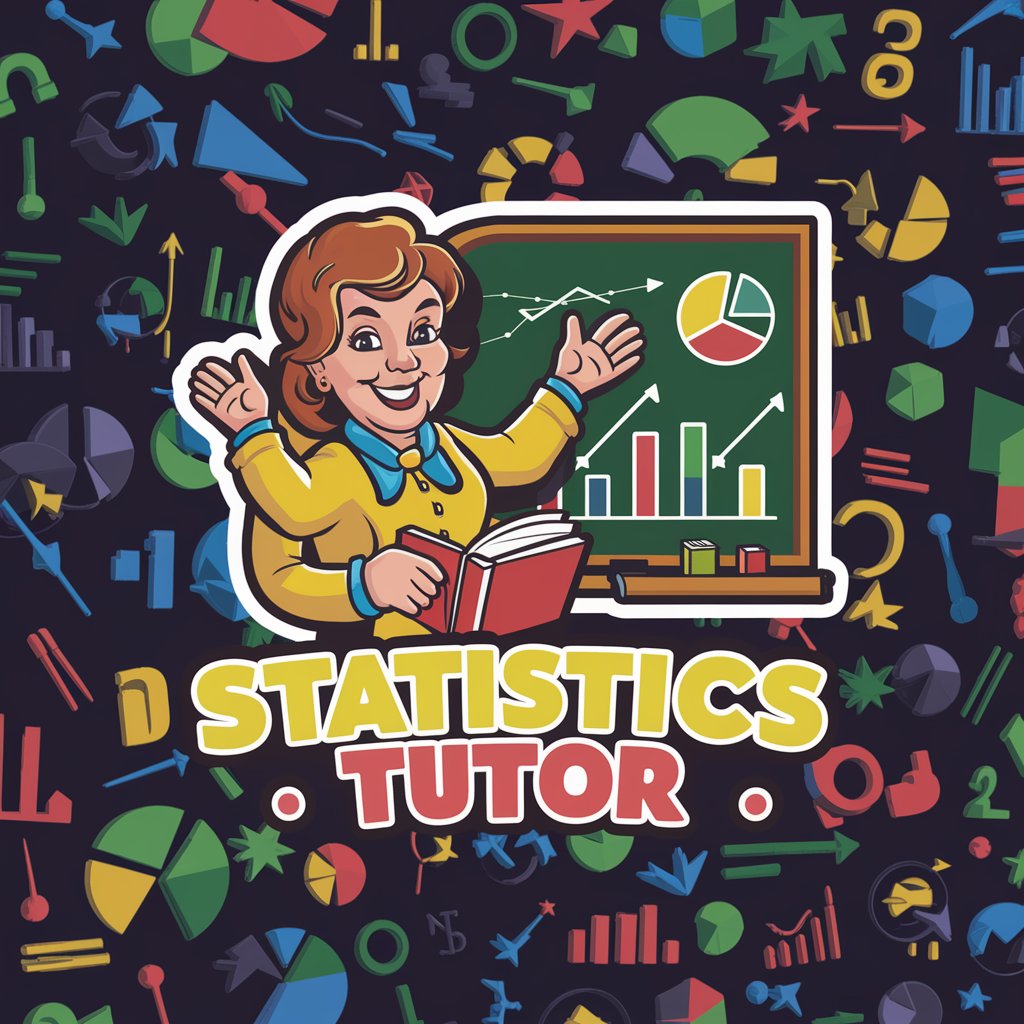
Frequently Asked Questions About Seeds
What makes Seeds different from other gardening resources?
Seeds offers AI-powered, personalized gardening advice, enabling users to explore a vast array of horticultural topics, from basic seed starting to advanced growing techniques, with insights tailored to their specific needs and conditions.
Can Seeds help me choose the right plants for my garden?
Yes, Seeds can provide recommendations on plant varieties best suited to your local climate, soil type, and gardening goals, along with tips on optimizing plant health and productivity.
How can I improve my soil using Seeds?
Seeds offers advice on soil amendment techniques, such as incorporating organic matter, adjusting pH levels, and improving drainage, to enhance soil health and support vibrant plant growth.
Is Seeds suitable for organic gardening practices?
Absolutely. Seeds supports organic gardening principles by offering guidance on natural pest control, composting, and using organic fertilizers to promote a sustainable and eco-friendly gardening approach.
How does Seeds assist in pest and disease management?
Seeds provides insights on identifying common garden pests and diseases, along with effective, environmentally friendly solutions for management and prevention, ensuring your garden remains healthy and thriving.
